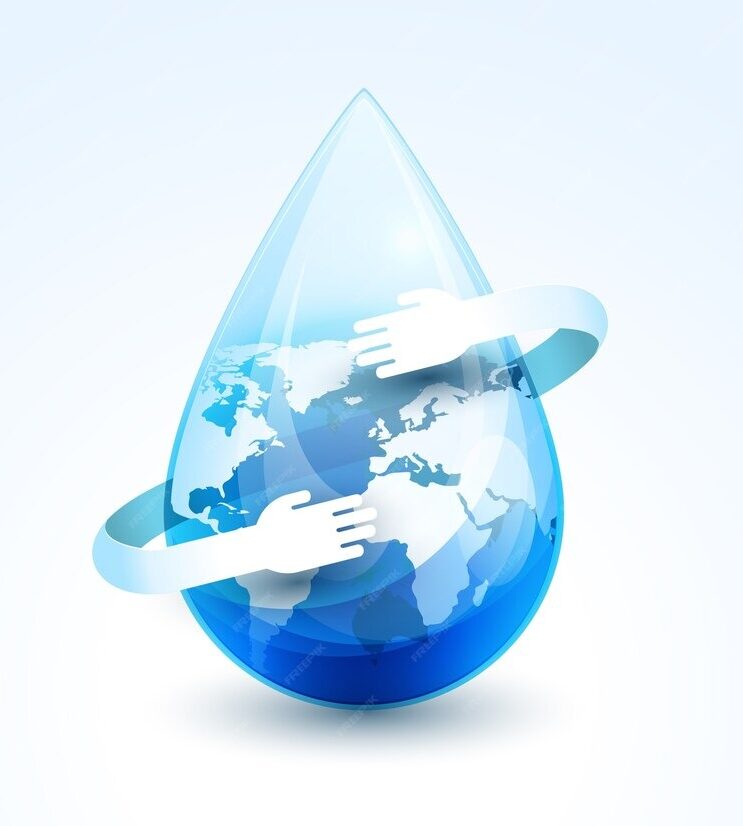South Asia is one of the regions in the world that has been divided over resources for decades, and that knows conflict more than the sheer majority of developed nations. South Asians have not only seen but experienced the horrors of lack of natural resources can bring on nations – be it the Indus water dispute of 1948 or the famines of colonial times during the 1800s. The same rivers that have been the centre of folklore and culture have been long cut into halves as a result of borders drawn on paper maps.
Imagine a canvas where the rivers paint stories of unity, dreams, and shared heritage. Against the backdrop of the ever-present geopolitical complexities in South Asia, water emerges not only as a lifeline but a potential peacemaker. And guess what? In 2024, the narrative takes centre stage with themes like “Bridging Borders: Water for a Peaceful and Sustainable Future”, “Water for Shared Prosperity”, and “Water for Peace”. It is as if the universe is conspiring to address the very essence of our South Asian existence.
In the shadow of the mighty Ganges, where communities depend on its flow, unregulated industrial discharge has tainted its waters, jeopardising the health of those reliant on it. Similarly, the Brahmaputra, a lifeline for many in South Asia, faces threats from unchecked deforestation and dam construction, impacting both water quality and availability. Meanwhile, the Indus Basin, subject to geopolitical tensions, bears witness to communities living on the edge, where disputes over water access can directly affect livelihoods and exacerbate existing challenges. These real-life examples underscore the urgency of addressing water-related issues for the well-being of the people and the sustainability of these vital river systems. In a region where the rivers, like the Ganges, Brahmaputra, and the Indus, are more than water bodies – they are sacred conduits of culture and life – these themes could not have arrived at a more opportune moment. It is like a spotlight on the stage of life, and the themes are the script that everyone has been waiting for.
As the geopolitical strife in the region continues, we have these themes urging us to look beyond borders and see water not just as a source of discord but as a pathway to peace and sustainability and brotherhood. It is almost poetic! The Indus Water Treaty, a testament to cooperation over conflict, should stand as a beacon amidst all the tension, and now, with these themes, we are turning the pages of a narrative that goes beyond political scripts.
The international bodies, like UN-Water, SIWI, IWA, World Water Council etc., orchestrating events like the World Water Day, World Water Week, World Water Forum, Global Water Summit, etc., are essentially saying, “Let’s talk about water, but let’s talk about it in a way that bridges divides, fosters peace, and lays the foundation for shared prosperity.” It is not just about managing water; it’s about managing our shared destiny as a species.
Now, let’s dive into the untold stories of individuals living in the midst of geopolitical intricacies. Their experiences speak volumes – of resilience, of dreams, and of a shared yearning for peace. These themes are a nod to their stories, a recognition that water isn’t just a resource; it’s a storyteller, connecting lives across borders. Imagine all the development and growth the region could benefit from by coming together and pooling the resources for a shared concern for our future generations.
As the international community gathers to unravel the narrative of ‘water for all’, it is not just about lofty ideals. It is a call to action for all of us. It challenges leaders to see beyond immediate gains and envision a future where water becomes a force that unites, not divides. So, in 2024, as we navigate through the script of water for shared peace and prosperity, let’s not just be spectators. Let’s be participants, contributors, and advocates for a future where water is not just a resource but a medium for unity, peace, and prosperity. The stage is set, the themes are resonating, and the story is ours to shape. Can you hear the applause building in the background? It’s the sound of a region ready to embrace a narrative that transcends boundaries, celebrating the true essence of water – a source not just of life but of shared humanity.
